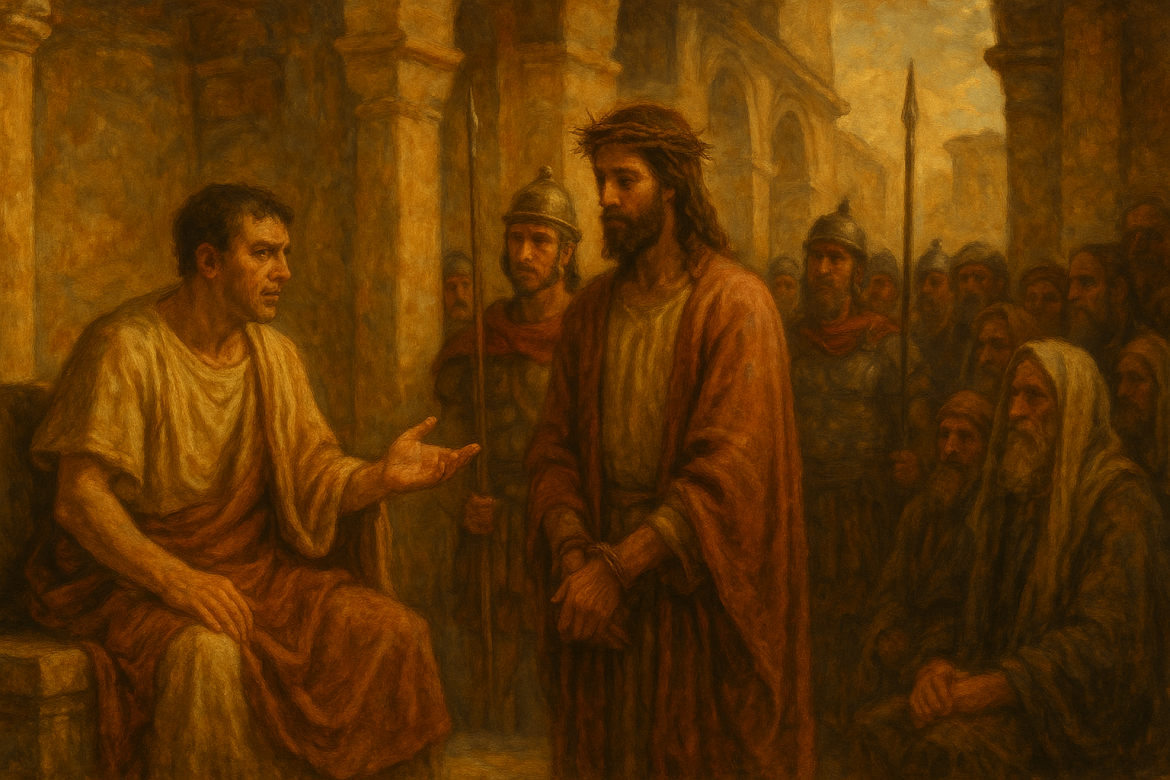Few chapters in Scripture capture the tension between justice, mercy, and divine purpose like Luke 23. In this powerful account of Jesus’ final hours before the crucifixion, we see political maneuvering, religious hypocrisy, and public opinion collide with eternal truth. But more than history, Luke 23 offers modern readers deep insight into the nature of sacrifice, justice, and what it truly means to follow Christ.
Synoptic Snapshots: Understanding the Context
Luke 23 doesn’t stand alone—it’s part of a broader narrative shared by the synoptic Gospels: Matthew, Mark, and Luke. These accounts align in core events but differ in perspective. Luke writes primarily for a Gentile audience, including Hellenized Jews—those who may have strayed from Jewish traditions but remained spiritually curious. Luke’s emphasis on inclusivity and personal transformation is evident throughout his gospel, and especially here.
While Matthew emphasizes prophecy and Mark focuses on action, Luke tells a story of compassion and identity. It’s in Luke that we see the subtle ironies and contrasts most vividly—between kingship and mockery, guilt and innocence, death and redemption.
Pilate, Herod, and the Politics of Innocence
The chapter opens with Jesus being brought before Pontius Pilate. The religious leaders falsely accuse him, twisting his words to suggest political rebellion. Pilate, seeing through this, finds no fault in Jesus. When he learns Jesus is from Galilee, he sends him to Herod Antipas, who had jurisdiction there.
Herod, too, fails to find any wrongdoing. He mocks Jesus, but ultimately sends him back. In this ping-pong of authority, neither ruler sees a reason to condemn Jesus to death. Yet both refuse to stand up against public pressure. It’s a reminder that cowardice in the face of injustice is still complicity.
This episode also marks a symbolic alliance: Herod and Pilate, once enemies, become friends over this shared decision. How many modern-day alliances are formed not on truth, but on mutual benefit and convenience?
The Mob and Barabbas: A Chilling Choice
Perhaps the most heartbreaking moment in Luke 23 is the crowd’s demand for Barabbas. Barabbas, whose name means “son of the father,” is a convicted insurrectionist and murderer. Jesus, the true Son of the Father, is sinless. Yet the people choose Barabbas.
This stark reversal reflects humanity’s tendency to choose the familiar over the righteous, the violent over the meek, and the immediate over the eternal. In a profound theological irony, Jesus dies so Barabbas can live—a picture of substitutionary atonement played out in real time.
The Cross: Forgiveness in the Face of Cruelty
Jesus’ crucifixion is not sanitized in Luke’s account. He is beaten, mocked, and nailed to a cross alongside criminals. But in the middle of this agony, Jesus’ words redefine strength: “Father, forgive them, for they know not what they do.”
Even one of the criminals hanging next to him finds redemption in his final breath. He acknowledges Jesus’ innocence and asks to be remembered in His kingdom. Jesus responds with immediate assurance: “Today you will be with me in paradise.” This moment offers one of the clearest examples of grace: that it’s never too late to turn toward God.
The Temple Curtain and What Was Finished
At Jesus’ death, the temple curtain tears in two—symbolizing that the barrier between God and humanity is removed. Jesus’ final words, “Father, into your hands I commit my spirit,” echo complete surrender. It wasn’t just his life that ended; it was the sacrificial system, the old way of approaching God. A new covenant had begun.
Luke emphasizes Jesus’ dignity throughout this ordeal. Though physically brutalized, he maintains control of his spirit and destiny. Even the Roman centurion recognizes the truth: “Surely this man was innocent.”
Joseph of Arimathea: A Quiet Act of Courage
Joseph of Arimathea, a respected member of the Sanhedrin, steps out in quiet defiance. Though part of the council that condemned Jesus, he disagreed and acted in compassion by claiming Jesus’ body and placing it in a tomb. His actions remind us that courage doesn’t always look like loud protests—it can be dignified and deliberate.
Applying the Lessons to Modern Life
Luke 23 challenges us to examine our own lives in light of Jesus’ sacrifice. Do we recognize when we’re swayed by public opinion over personal conviction? Are we willing to forgive those who harm us, as Jesus did? Do we cheapen grace by taking sin lightly?
Justice, in God’s economy, isn’t just about punishment—it’s about payment and restoration. Jesus’ death wasn’t simply tragic; it was transformative. It teaches us that grace costs something. And that cost was paid in full by Christ.
Conclusion: Never Take Grace for Granted
Luke 23 is a sobering, powerful chapter. It reminds us that Jesus chose the cross out of love, that forgiveness is always possible, and that redemption is never out of reach. As we reflect on these truths, may we not take lightly the price that was paid. Instead, let our response be one of gratitude, reverence, and a commitment to live differently.

